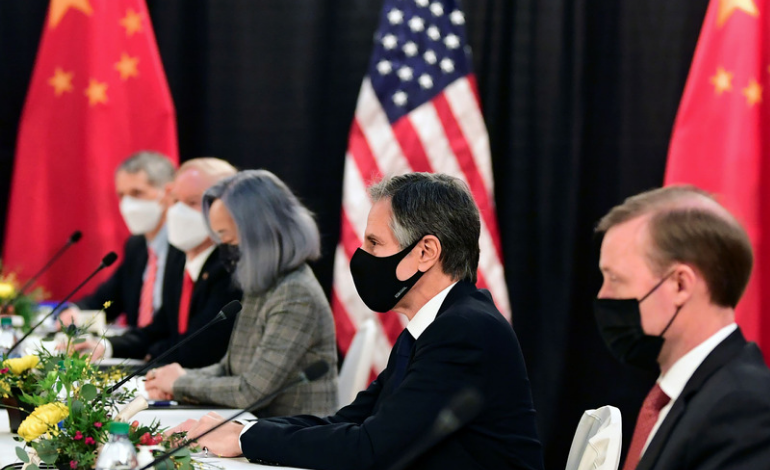After US Secretary of State Antony Blinken delivered a speech urging for efforts to counterbalance Beijing's influence, China's foreign ministry accused Blinken of "smearing" the country

In a long-awaited speech billed as US President Joe Biden's administration's most comprehensive declaration on China to date, Blinken claimed Beijing posed "the most significant long-term risk to the international order."
In recent days, the United States and Western allies have issued a chorus of warnings about China's expanding influence and global ambitions.
Blinken warned of China's "desire to transform the international order" in his broad speech on Thursday, and urged countries to maintain the status quo.
He also accused Beijing of inflaming tensions over Taiwan, a self-governing island that China claims as its own, and claimed that Beijing has "shut off Taiwan's contacts with countries throughout the world and (is) preventing it from participating in internationalorganisations."
On Friday, Beijing slammed the speech, accusing it of "spreading false information, exaggerating the China threat, interfering in China's internal affairs, andsmearing China's domestic and foreign policy."
China's foreign ministry spokesperson,Wang Wenbin, told reporters that the speech demonstrated Washington's desire to "contain and control China's growth in order to retain US hegemony and dominance."
Washington has lately established a vague new economic framework for Asia, as well as a conference with the European Union to establish technology norms.
As China controls new industries such as artificial intelligence, the initiatives are focused at connecting like-minded nations.
Blinken acknowledged a growing consensus that other countries cannot modify China's course, claiming that the country has become "more oppressive athome, more assertive abroad" under President Xi Jinping.
"There's a growing consensus on the need to be more realistic in our dealing with Beijing," he said
'Coexist And Cooperate'
The stance of the previous American government of former President DonaldTrump, which spoke in stark terms of an all-out global battle with China, was in stark contrast to the statement by the US Secretary of State.
Blinken has downplayed US-China competition and has not pressed countries to pick sides during trips toAfrica and Latin America, where China has invested billions of dollars in infrastructure.
"We are not searching for a new Cold War or confrontation. On the contrary, we're adamant about avoiding both "In his speech, he stated
"We do not wish to prevent China from playing a large role in the world, nor do we seek to prevent China — or any other country, for that matter — from growing their economies or furthering their people's interests."
He did, however, say that protecting the current global system, which includes international law and agreements, would "allow all countries, including the US and China, to coexist and collaborate."
Biden made headlines on Monday by making the most unequivocal commitment in decades that the US will militarily defend Taiwan against any Chinese invasion.
Beijing was enraged by the commitment and cautioned the US not to "underestimate" China's strength and capability.
On Thursday, Biden emphasised that the US was sticking to its long-standing policy on Taiwan, claiming that Beijing was the one who had heightened tensions, citing near-daily military flights near the island as an example.
"While our policy has not changed, Beijing's increasing coercion has," Blinken added.